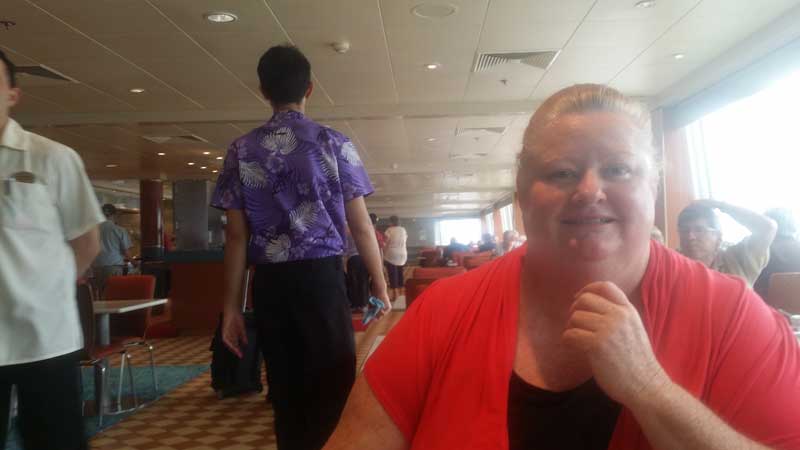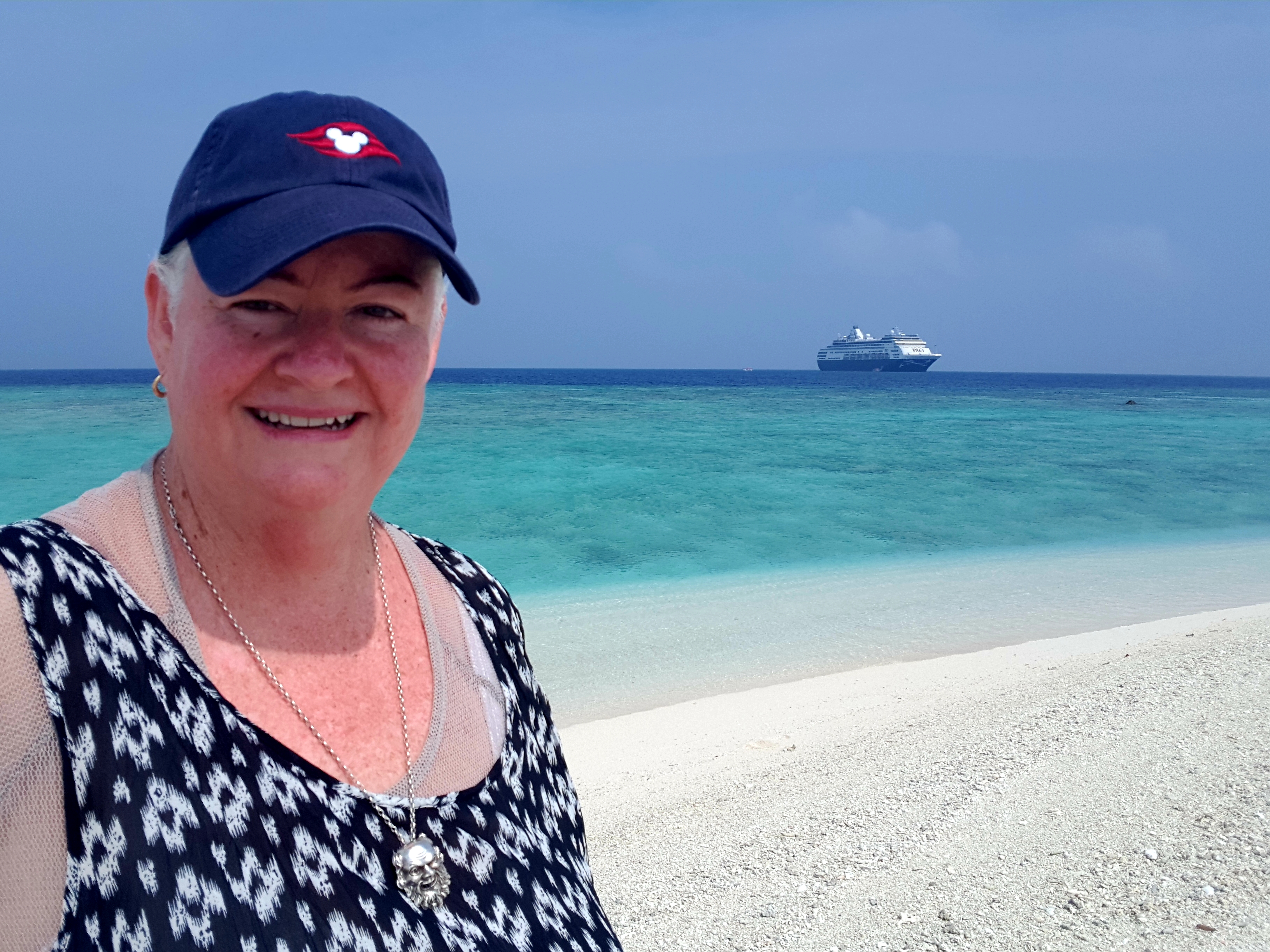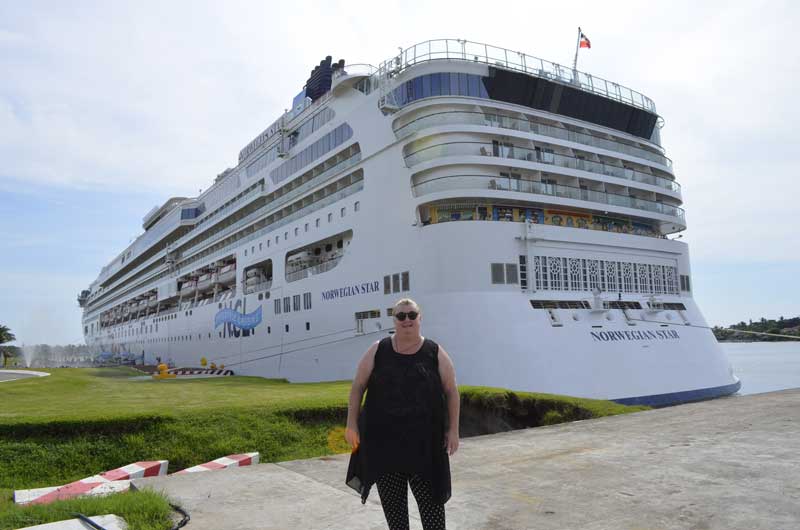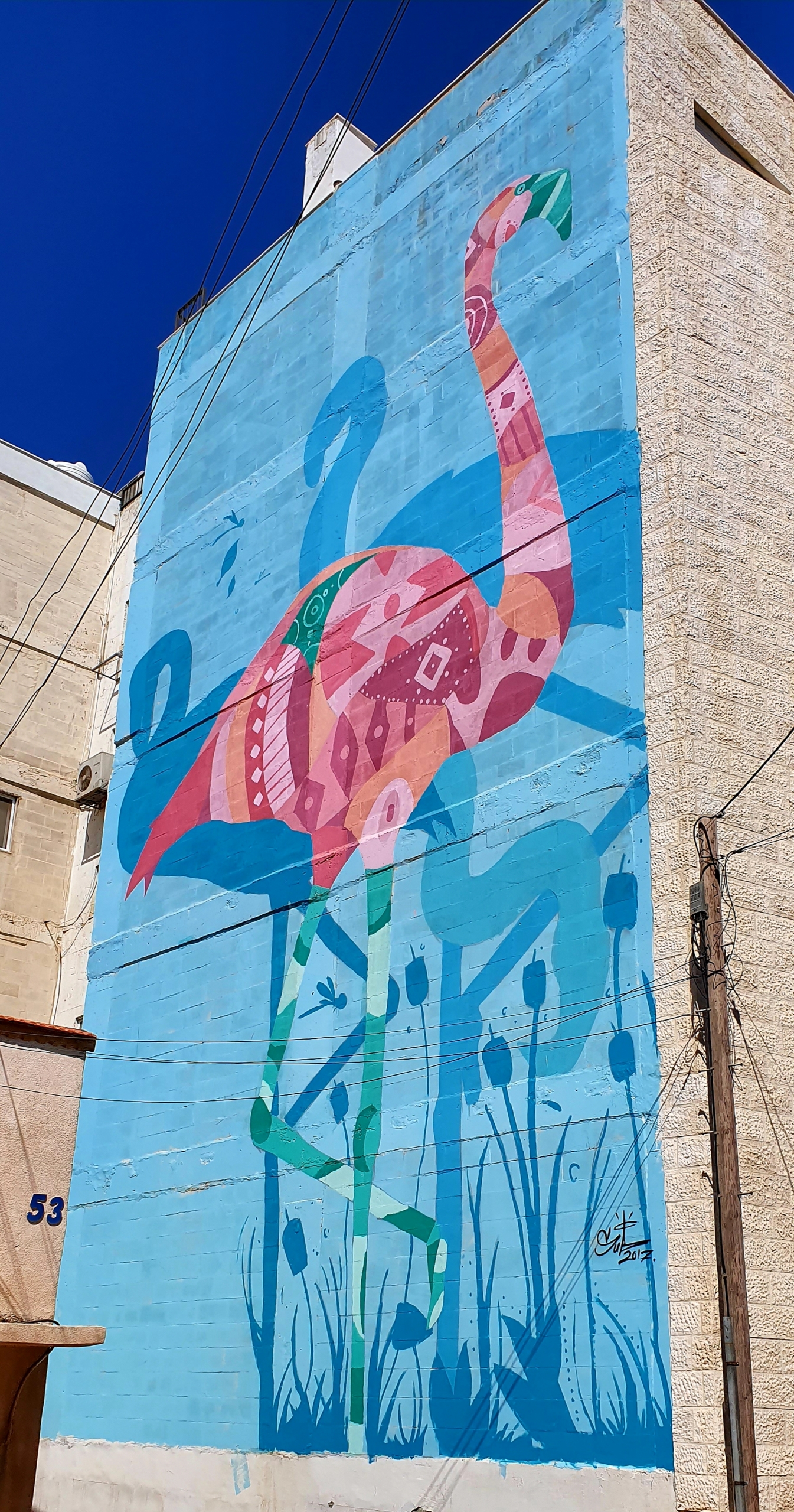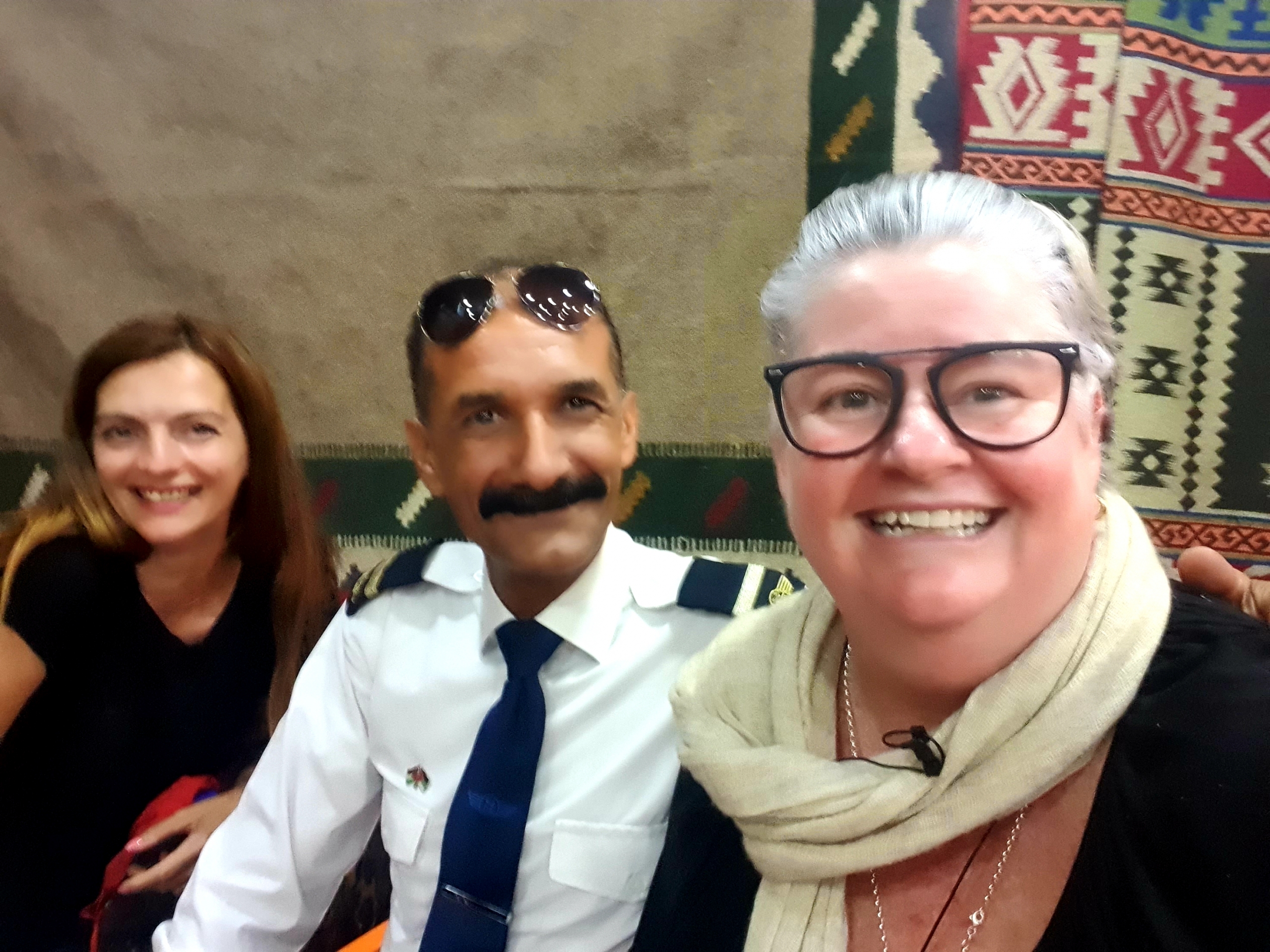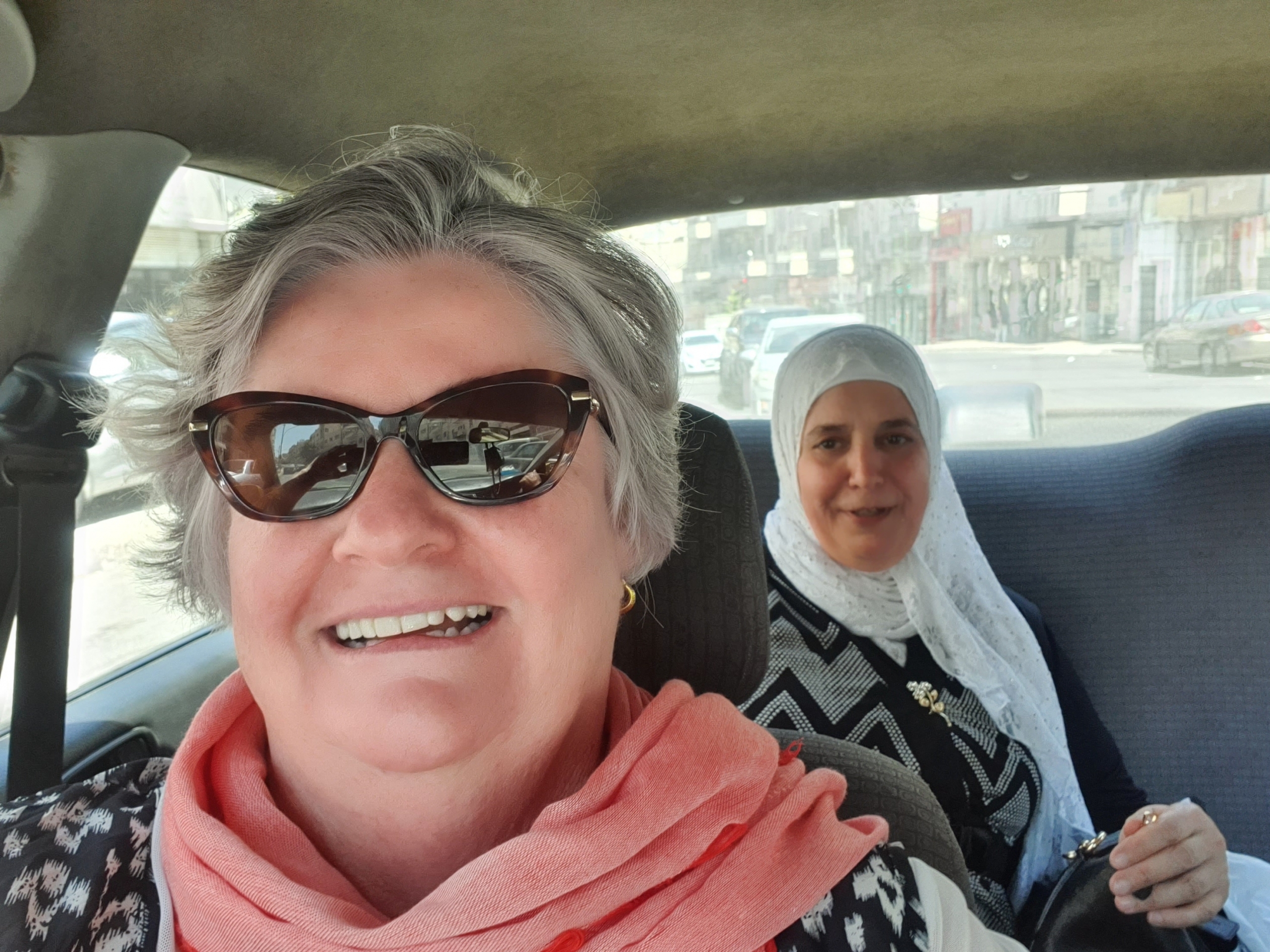As amazing as travelling is, don’t leave it to your later years to really explore a lot of the world, do it now while you can. Travel is not only fun, providing new experiences, adventures, and memories that last a lifetime there are also a variety of personal and health benefits. Research shows travel offers health benefits to your mind, body, and soul, including leading to higher educational achievement, it lowers stress and help work productivity, travel leads to better relationships, reduces stress, boosts brain health, lowers the risk of depression and lowers the risk of heart attacks. Travel authors like Crane quote Mark Twain, who sailed around the coast of the Mediterranean in 1869, wrote in his travelogue Innocents Abroad that travel is “fatal to prejudice, bigotry, and narrow-mindedness.” Leaving us also with the powerful message that “Twenty years from now you will be more disappointed by the things that you didn’t do than by the ones you did do. So throw off the bowlines. Sail away from the safe harbor. Catch the trade winds in your sails. Explore. Dream. Discover.” (Siddiq, 2017). Are you open to Twain’s message or does it fall on deaf ears? If the saying is “The world is a book; those who do not travel read only a page”, which one do you choose, read the whole book or just stay on that one page.
The strongest piece of advice I give people is to experience more joy in life through travel. It is not just short weekends or organised tours, really travel, and take a meaningful journey out to somewhere you’ve never gone before with of your comfort zone on an open schedule. Open your mind and your heart to what the universe will show you. Take time to wait and listen for the opportunities that open to you. A sense of wanderlust, a longing for more destinations, food, cultures to experience, and people to meet.
When you read articles about the advantages of travel, you see commentators come up with lists of 3 or 7 or 10 or 13 or even 15 benefits to travel, I think there are up to 30 benefits to travel, but there are some core themes, but in reality the genuine benefits of travel are immeasurable. By summarising these articles, I want to inspire you to cruise and holiday more, let me demonstrate the wonderful benefits of travelling so you can take the leap of faith into the unknown, remember you only live once, so it is time to start travelling, pack your bags and have some life-altering experiences. Remember, you do not have an infinite lifespan. What is your strongest travel dream? What do you want to look back on your life and say, I wish I had …….? I suspect that dream would be to travel, and I would push it to even say to cruise.
- Travel improves heart health. Travelling keeps you young or at least healthier with studies having linked travel to decreased risks of heart attack and depression and even the promotion of brain health (Erskine, 2013). The Global Commission on Aging and Transamerica Centre for Retirement Studies, in partnership with the U.S. Travel Assn., released research that shows travel offers health benefits. Taking into consideration pre-existing poor health and income levels, studies showed women who vacationed at least every two years have lower risk of heart attack or coronary death compared to women who vacationed every six years and men who did not take an annual vacation were shown to have an increased risk of death from heart disease (Snyder, 2015 & Holland). People who travel tend to have a longer life expectancy with all forms of travel enhancing your lives and can actually increase our life expectancy (Snyder, 2015). Ironically this would add up to an increased chance of living longer and the opportunity to have more fun.
- Travel keeps you fit. Snyder (2015) says travelling keeps you fit because as you want to try new things and see all there is to see so we’re more likely to attempt an extreme sport, walk the city streets much more than we would back home, or hike to get the best views of our surroundings. It can be easy to be active on holiday because exercise is easily designed as fun. You can go mountain climbing, explore a town (which results in hours of walking), swim in the ocean, and hire a bike and so much more. Travel promotes physical activity, whether it is walking the streets of a foreign land, climbing a mountain or rushing through the airport. Physical activity lowers blood pressure and the risk of heart disease and stroke. Even if you plan to stay all day at the beach, walking on sand will force your muscles to work twice as hard.
- Travelling Can Reduce Your Risk of Dementia. The risk of developing dementia and Alzheimer’s disease steadily increases as we grow older (Anon 3). After the age of 65, the risk of developing Alzheimer’s disease doubles approximately every five years. It is estimated that dementia affects one in 14 people over the age of 65 and one in six over the age of 80 (Alzheimer’s.org). But according to the Global Coalition on Aging and the Transamerica Centre for Retirement Studies, Alzheimer’s can be halted in tracks by keeping our minds engaged through travel. They have put together this white paper which details the connection between a healthy older age, mentally active, and travellers. It claims that the benefits of travel are both mental and physical, due to “physical activity, cognitive stimulation and social engagement.” Paul Nussbaum, a clinical neuropsychologist and professor of neurological surgery at the University of Pittsburgh supports the view that travel may help to prevent dementia. “When you expose your brain to an environment that’s novel and complex or new and difficult, the brain literally reacts. Your brain literally begins to look like a jungle” (Noel, 2014). It is fantastic that travel improves your brain health by expanding your mind, meeting new people and adapting to new situations, you become more globally and culturally aware. All of these experiences are good for your mental health because the new experiences increase cognitive flexibility and keeps your mind sharp Snyder (2015). Holland (2017) says when your brain is introduced to new experiences and environments (which happens during travel, essentially) it becomes challenged and builds resilience at the cellular level so degenerative disease is potentially delayed. This increase in cognitive stimulation due to exposure to novelty has been shown to improve both memory and concentration, particularly in individuals with dementia. Similarly, when you travel, you interact with novel stimuli in the form of new people, cultures, situations, and experiences, which can contribute to the delayed onset of degenerative disease. A study published in the journal Environmental Psychology, found that people who simply looked at a photo of nature for only 40 seconds had improved focus and performance on their next task (Daly, 2015).
- Travel improves relaxation. It is really great to live life to its fullest and enjoy a stress free time with yourself. By going on holidays you recharge our “batteries” by disconnecting us from our regular life. When we come back from a holiday we feel invigorated and are happy to be back in our day to day routine (Anon 2). Travel is a very good stress reliever that has a lot more to give than most people are willing to credit for. Travel has been scientifically proven to lower stress levels, increase your happiness, and decrease your depression. After a short holiday, travellers felt well-rested, less anxious, and in a better moods which remains with you for weeks when you returned home. Time away travelling can reduce stress and rejuvenate you. A relaxing holiday can improve your ability to handle stress long after the holiday as studies show travellers had lower levels of stress hormones (Getsinger, 2016). Benefits of travel can be felt quickly, with stress levels dropping significantly within only a few days of holiday. Travel can bring you relaxation from the general stresses of life. Stress is a normal evolutionary survival state, but when we have too much stress in our lives, it can be detrimental to your health. Many things bring about stress: work, family, relationships, change in health. Activities that can help reduce stress and tension include relaxation or by doing activities you enjoy such as travel.
- Travel relieves stress and boosts mental health. Stress reduction is one of the most important benefits of travel, according to the Global Coalition on Aging. According to a 2012 Expedia survey, 89% of holiday makers found they could let go of stress and just relax after only a day or two into their trip. Pulling yourself out of your daily routines and into new surroundings resets both your mind and body, resulting in significant stress relief. Travelling can lower levels of depression and improve psychological functioning, according to a 2009 University of Kansas study. A 2005 study also made a connection between travel and a lower risk of developing depression, in a sample of 15,000 women (Anon 3). You are also likely experience less stress and more satisfaction with their overall mood and outlook after returning from a holiday (Holland, 2017).
- Travel enhances creativity. It turns out writers have good reason to travel to a different country in search of inspiration and motivation for their next novel, because the brain’s neural pathways are influenced by environment and experience (sounds, smells, language, tastes, sensations), which leads researchers to believe that travel can spark synapses in the brain and enhance creativity (Holland, 2017). A 2012 study published in the Journal of Personality and Social Psychology found a strong link between creativity and travellers’ immersions into cultures different from their own. According to the study, the better you are at engaging and adapting to new cultures, the more creative and professionally successful you will be (Tadmor, Galinsky, & Maddux, 2012). In order to actually enhance creativity, the author stresses the importance of immersing yourself in new cultures, rather than simply changing your physical location. Crane writes about psychologists and neuroscientists study about how a period of time living abroad may have the potential to affect mental change. Travel influences cognitive flexibility which is the mind’s ability to jump between different ideas, a key component of creativity. But it’s not just about being abroad, Galinsky says: “The key, critical process is multicultural engagement, immersion, and adaptation. Someone who lives abroad and doesn’t engage with the local culture will likely get less of a creative boost than someone who travels abroad and really engages in the local environment.” Daly (2015) cites Maddux, Academy of Management Journal study where it also found that travel boosts your creativity because of cultural immersion. By spending an extended period of time with other cultures opens up your mind, forcing you to think in different ways and bounce around between different ideas.
- Travel Increases knowledge and cultural awareness. Just by being in another country increases the knowledge and intercultural awareness (Getsinger, 2016). When you travel you are open to new experience such as new cultures, cuisines, sights, and sounds provide countless opportunities to experience and learn something new. It is well know that travel helps to bring people together by building lifelong memories. Studies show family travel can also significantly reduce behavioural problems and illness in children.
- Travel keeps you learning. Get your real-life education from travel because it is impossible to get in a traditional school, college or a university (Jenkins, 2016). No matter what our age, we can benefit from plonking ourselves into new and unusual surroundings. The result is exhilarating, and maybe a little be daunting sometimes, but there are constant new brain connections being made while we figure out our surroundings (Anon, 3). There is so much to take in, new cultures, sounds, cuisines, history, music, language and even unusual smells. All of your senses are busy figuring everything out as you potter around. Some studies have also pointed to the fact that those who travel often have greater self-confidence, which can be a great foundation for further education and eventually career growth. I, like many others find that visiting the real world is a far rich a source of education and it is unlike anything that can get from a textbook. Geography, history, sociology and much more can be understood deeply when you find yourself immersed in the reality of the subject. The US Travel Association, launched The Travel Effect, a multi-year, multimillion dollar research and marketing campaign to study and publicise the benefits of travel on an individual’s health it found students who have travelled abroad are nearly twice as likely as their home-bound peers to complete a college degree and report earning higher incomes, out-earning their peers by more than 40% (Hag, 2013).
- Travel creates a lifetime memories. These memories will create a bond that nothing can erase no matter what happens with the friendship/relationship. Travel can offer a new perspective on the relationship and cement the bond forever (Anon 2). It also gives nice stories to tell people afterwards, you can create photo albums about your trips and when you feel nostalgic you can take an hour of your life and experience the trips again by looking at your pictures. While you are on the road, you are more likely to meet other people with some crazy quirks, this is how meaningful relationships are built. It is healthy to inject some fresh blood into your circle of friends now and again, to keep your perspective in check (Anon 3). Please people, really live when you are alive, take that unforgettable trips, experience that moment, eat and drink and more. Discover what this amazing planet has to offer as soon as possible.
- Travel can build self-confidence. Travelling can sometimes provide an opportunity to accomplish something challenging. The feeling of satisfaction from crossing a gorge, or hiking a mountain can leave you with a warm feeling of pride in your abilities (Anon 3). This can flow over into your everyday life, where you may be more inclined to set goals for yourself and push harder than you may have before.
- Travel makes you more trusting and increases your faith in humanity. Potentially because seeing all of the good that exists in the world makes it easier to reassure yourself and trust that most people, are just trying to do the right thing. Traveling forces us to temporarily disconnect from our normal routine and it helps you appreciate the people and things you have around as it reassures your peace of mind. Siddiq (2017) says by experiencing the interconnectedness of humanity you notice how we have more in common and share similar needs. By having these travel experiences your perspective of your own life expands. Through this process you can become close friends with others from different backgrounds and cultures, as you begin to realize how connected the world really is. By travelling you consciously alter you’re of awareness about how you perceive your life, and the wider world around you. Siddiq (2017) say he feels travelling often helps people experience a world-centric view of consciousness. Cross-cultural experiences have the potential to pull people out of their cultural bubbles, and in doing so, can increase their sense of connection with people from backgrounds different than their own (Crane). In a 2012 study out of Tel Aviv University, researchers found that people who “believe that racial groups have fixed underlying essences” (essentialist views), performed significantly worse in creative tests than those who saw cultural and racial divisions as arbitrary and malleable. “This categorical mindset induces a habitual closed-mindedness that transcends the social domain and hampers creativity” (Tadmor, Chao, Hong, and Polzer, 2013). There is the potential that travel makes you appreciate home more because of the saying “You don’t what you have until it is gone”.
- Travel makes you realise how little you know about the world & your home is the whole world. The more we travel, the more you realize that our home is so much more than the street that you live in, your town, city, state or even the country that you grown up in. what you realize when you travel is that your home is really the world, the whole planet. What happens is you become more consciously aware of how you need to harmoniously live and support the planet and its entire people. Siddiq (2017). When you travel, you come to realise that some of the things you have been told or heard or indoctrinated about the world ends up being very different. At some point you may realise that the travel that you thought was going to be expensive and dangerous, is actually really reasonable and you may save more on your living expenses travelling the world than if you just stayed at home. You may also come to realize how kind and friendly strangers really can be, and how most people are even willing to take care of you, for example offering you a place to sleep at night. There is a whole playground out there to explore, a whole world to learn about, with every place you visit you discover a new magic, every person you meet has the potential to become a friend and every culture you experience could be part of your missing puzzle.
- Travel makes you a better problem-solver. A study from the Journal of Personality and Social Psychology reported that students who lived abroad were 20% more likely to solve a computer task than those who didn’t travel (Daly, 2015). Simply seeing another culture for an extended period of time opens up your mind to the many ways of the world, which helps you realize that there is definitely more than one way to approach any situation. By getting out of their comfort zone your mind becomes more creative. It is important to explore new places and break your daily grind to develop new neural connections to trigger original and creative thoughts (Jenkins, 2016). Travel boosts your confidence and presence of mind, as learn to deal with unknown situations and develop coping skills as you overcome obstacles (Jenkins, 2016). New experiences increase our resourcefulness by encountering new situations that you would never encountered normally (Anon 2). Some people who travel a lot in life may be more ready to embrace change and have a natural ability of overcoming problems that may overwhelms others. Travelling can help you to get to know yourself because you have already navigated some unusual situations. These extraordinary experiences can help you understand more about yourself and show you how to react in different situation which prepares you to deal with similar situations in the future.
- Travel improves social and communication skills. Jenkins (2016) says that you develop communication skills through the simplest of activities such as finding the way to your next destination or asking for the nearest restaurant and as you get to know different people and places. Learning to interact and communicate with people who are different from you is one of the most important social skills to learn. All people have their own unique communication styles, and not all ways are effective (Anon 1). Not only does travelling improve communication skills, it can actually boost self-confidence, since ideas and opinions are able to be more clearly expressed, shared and understood. You may find that you come up against language barriers while you are travelling (Anon 3), this gives you the opportunity to not only learn a new language, but also force you to work on your other forms of communication.
- Travel makes you really healthy. Travel can fill you with fresh air because as you travel can get plenty of opportunities to get out and about in nature (Anon 3). When you get in touch with nature and soak up some sunshine you will give yourself a real boost of Vitamin D. Vitamin D is great for reducing depression, controlling high blood pressure and even preventing heart attacks and cancer. There are also the physical benefits of being out in nature such as a boost to your mental health.
- Travel can boost your immunity. There is the additional health advantages to travel as it is a good way for you to maintain your standard immunisation schedule such as MMR (Measles, Mumps & Rubella), TDaP (Tetanus, Diphtheria & Pertussis) and Hep A. or more exotic immunisations for more exotic destinations such as Typhoid, Yellow Fever or Polio (Getsinger, 2016). Travel exposes you to different environments, which turn creates stronger antibodies and boost your immune system naturally (Snyder, 2015). Antibodies are important little proteins that protect your immune system from harmful pathogens. Research demonstrates that exposure to some dirt and minor illnesses actually help your body and gut stay strong, so when you travel from place to place exposing yourself to the flora and fauna of the bacterial world, your body adapts to these new bacteria, which it turn makes it much stronger (Anon 3). Notwithstanding, you should not forgo normal hygiene practices to boost your immunity while travelling, so you should still wash your hands or use a little hand sanitizer occasionally. Another important health warning is nothing is more important than drinking clean water, please don’t test out your immunity by drinking anything that is suspect.
- Travel can make you more humble according to the Journal of Personality and Social Psychology. The world is full of amazing natural and man-made wonders how could you not be in awe of such things. I found myself in a Norwegian Fjord once with a group of Americans, one guy voiced less than positive sentiments of the vista, so I said “What would you prefer Disney reproduction or seeing the forces of a millions years of nature?” Point taken. One travel article said that getting accustomed to different cultures you have a duty to respect the culture of the people you visit. Some places have very traditional customs and beliefs where others are more modern. Experiencing different cultures can be multifaceted such as enlightening, humbling and educational. Learning about people’s lives and customs deepens our understanding of ourselves and of our world. When you spend time away from home, especially in a place where we don’t have the same luxuries readily available to you become more aware and become more appreciative for the luxuries you experience back at home (Siddiq, 2017). Travelling through impoverished areas really make you the opportunity to develop a deep appreciation for the amenities like clean water and abundant electricity that you take for granted.
- Travel opens you to new experiences because immersing yourself in other cultures expands your horizons and gives you a new perspective. Trying new things when you’re travelling leaves you more open to things in your everyday life. Markman (2013) writes about travel experiences that can lead to changes in personality, specifically through Openness to Experience by trying new things and to engage in new experiences. He quotes Zimmerman & Neyer (2013) article in Journal of Personality and Social Psychology that examined how travel influenced personality development. The research on young people showed traveller may be higher in Conscientiousness (which reflects a need to follow rules and to complete tasks) than non-travellers. When people returned from travel they demonstrated increased Openness to Experience, Agreeableness (which reflects a need to get along with other people) and Emotional Stability. By travelling a person gains new perspective on life, this in turn makes a person less emotionally reactive to day-to-day changes, which demonstrates an increase Emotional Stability. The experience of meeting new people also helps with Agreeableness. These changes in personality were also reflected in changes in person’s social networks as a result of travel, because people who travelled tended to meet a lot of new people and extend their social network. To view new customs and different ways of living is fantastic for the mind as it gives us a new perspective about life and especially our life, it can help us change some of our habits or even create new ones (Anon 2). Discovering different values and ways to get by in life is essential. It is important that at some part of your life you need to visit exotic new places and discover what this wonderful world has to offer. Holland (2017) writes about travel broadening your perspectives, not only of the world but also of yourself. When travelling you may often find yourself in situations that you wouldn’t be in otherwise. You are faced with the reality of living outside your comfort zone, which, as uncomfortable and unpredictable as it is, gives you the opportunity to transform your frame of reference. Psychologists point out that people often have epiphanies while travelling, as they are able to view their own issues from a more detached point of view. By observing firsthand how other people live, it is almost like viewing the world through someone else’s eyes, by doing this it can also broaden your own view. Observing how other cultures function can force you to challenge your own assumptions and have an opportunity to open your mind to experience alternative ways of thinking.
- Travel can help you reinvent yourself. Reinvention is an important of searching for meaning, finding a sense of purpose or it can be a fresh start. Daly (2015) quotes Environmental and Design psychologist Toby Israel, author of Some Place Like Home, by saying “Travelling helps us look at our lives from a distance — both physically and metaphorically. And when you do that, you’re able to see it a lot more clearly.” During travel you have a perfect opportunity to take stock of your life. Travel can be vital in a transition from one stage or closure of your life to another such as a breakup, retrenchment or empty nesters.
- Travel increases your connections to others and yourself. Holland (2017) writes, travel offers opportunities to meet new people that you otherwise wouldn’t have the chance to connect with. When you are outside of your comfort zone in a different country, you may have to look to others for guidance, which can create a sense of connectedness. Your mental and physical health improves when you make connection by engaging with other travellers or the locals. Holland (2017) writes that research is shown that when you get out of your social comfort zone and immerse yourself into cultures different from your own, you strengthen your personal identity, including your values and beliefs, and increase your confidence therefore enhances your sense of self. This is reinforced by Crane who quotes Immordino-Yang work that cross-cultural experiences have the potential to strengthen a person’s sense of self (Anon3).
- Travel can boost your relationships and can bring back the romance! Travel has the ability to bring couples close together, thanks to the act of creating and experiencing life long memories together. Relationships can robustly grow through taking the time to travel alone as a couple, with communication in particular being an area that is improved. Travel helps build stronger relationships. Jenkins (2016) Creates Memories for Lifetime and helps you build stronger bonds with people. You can share and save memories by creating photo albums or sharing photos in social media. Hag (2013) One-third of all leisure travellers say they have more sex while on vacation Travel has a positive effect on relationships. Couples who travel together have healthier, happier relationships compared to those who do not travel together.
- The U.S. Travel Association launched a campaign called “Travel Effect” which analysed the benefits of travelling as a couple. Their results included these heart-warming figures correlated from a telephone survey of 1,100 adults by Edge Research.
- 63% of the couples surveyed rated a weekend getaway as more likely to spark romance than large or small gifts,
- 83% of those who travel together as a couple report that the romance is still alive in their relationship,
- 72% of the couples surveyed believe that travelling inspires romance,
- 77% of couples that travel together questioned report that they have a good sex life,
- 40% say sex together is permanently better after travel.
- “Couples who take time to vacation alone together at least once each year report happier, healthier relationships overall compared to those who do not travel as couples,” ~ Pam Loeb, principal of Edge Research. It may be a good time to remind you of all of the health benefits of having sex (strengthening the immune system, improving bladder control, lowering blood pressure etc.).
- What I know is it is extremely easy to make friends when you travel. I love the Tim Cahill saying, “a journey is best measured in friends, rather than miles.” There is something magical happens when people can show up more raw and real when they’re out of their conditioned environment and open to express themselves without feeling judged. That rawness and realness ends up inspiring others to be authentic, and that’s how you can become best friends with people when you’ve only known them for a few hours (Siddiq, 2017).
- Travel makes you fearless because when you are on holidays you do things that are out of you comfort zones. When you travel, you do not care what you do at all and you can just break free and have fun from the norm, regardless of age Jenkins (2016). Be warned, this fearless get stronger the more you travel.
- Travel makes you happier. A study from the journal Psychological Science found that anticipating an experience such as travel before it even happens makes you happier than if you’re waiting for something tangible, like a new shirt (Snyder, 2015). Travelling is fun, it is a chance to take a step out of your daily life and work, and move your focus completely on doing something that you really want to do (Anon 3). There are lots of places to explore in the world. Your travel doesn’t have to be limited to where you live there are lots of exciting places to experience in the real world. That may be relaxing by the beach, climbing a mountain, visiting museums or painting pictures, forest, fishing, walking, cruise, camping, homestay, cycling, the variety goes on and on and on. In reality it doesn’t matter where you go, you are taking time to nourish your soul which inevitably will bring some feel positive feelings. There are so many choices when you travel, any adventure will make memories that will last a lifetime, as you can relive them again and again as you look back on your travels (Anon 1). Happiness knows no bounds as you can experience a boost in happiness even while planning a trip (up to eight weeks before setting off to your destination). So it can be rewarding having something to look forward to, even if it is only a two-day night cruise.
- Travel makes you better in the workplace. A study from the U.S. Travel Association found that people who take all of their holiday days have a 6.5% higher chance of getting promoted. Getsinger (2016) writes about the link between people who travel and low rates of absenteeism, higher productivity levels, higher moral and generally report feeling less burnt out. One article indicated that travel can reduce your stress levels so the time away from the office should bring a well needed break and a chance to relax. The advantage of these reduced levels of stress is that the stress levels remain low for a period of time when you return home. This holiday time away from everyday stressors has a positive impact on our hormones, with levels of cortisone stabilising as you continue to relax (Anon 3).
- Travel makes you more patient and tolerant. When you travel you come to understand that you have absolutely no power to influence some situations and sometimes things do not go according to plan. Sometimes you just have to wait and accept the limitations, like first world issues such as crap Wi-Fi, believe me, you won’t die, and the earth will still turn, so embrace the experience as character building. Dealing with delays, missed flights, mishaps, and different cultures during your travels will make you much more patient, tolerant and understanding person in the long run. These unexpected travel experiences help you learn to cope when you encounter uncertainties in normal life (Jenkins, 2016). Siddiq (2017) writes about experiencing serendipity (the occurrence and development of event by change in a happy or beneficial way) and synchronicity (the simultaneous occurrence of event which appear significantly related but have no discernible cause connection) when you travel. I see these moment as the universe giving you opportunities, you have to be open to them and accept them as the gifts that they are.
- Travel can help you get over a loss. When you lose something significant like a job, a significant other, you feel like you lost a part of yourself, or if you have lost a part of your soul, you may not be able find it again until you travel (Daly, 2015). Travelling gives you the opportunity to disconnect from our regular life. By extending yourself in a new situation with new surroundings you have an opportunity to refocus yourself, break old habits and you to get in touch with yourself. So here is the plan, the next time something hugely disappointing happens in your life, book holiday, book a cruise. During a holiday you get to forget your problems for a few weeks, giving you the space to figure things out (Anon 2). Travel may help you find yourself because it gives you a chance to really open your eyes and develop your character. You might find something out about yourself that you hadn’t noticed before or return home a new person (Anon 3). During travel you will also have an opportunity to find a new purpose, as travel is an amazingly underrated investment in yourself (Siddiq, 2017). Being open to new concepts, and ways of seeing the world, often gives you a new purpose in your life. If you’re feeling stuck and struggling to find your purpose, what you want to do with your life, your career or educational path that you may want to pursue, travel might help you discover a new sense of life purpose and direction. Live is such a wonderful gift, so as you travel and experience more of the world, you may often become overwhelmed with gratitude and appreciation for all the beautiful moments you have enjoyed and people you have shared them with (Siddiq, 2017). When you are moving through a transition phase more often than not, there is a realization that you can experience and take action from now while you are still alive and have the energy rather than looking forward to a lifetime of regrets by the time you are on our deathbed. You have to ask yourself would you rather wait until you saying “I wish I had”, live so you can say “I’m glad I did”.
- Travel just makes you feel more invigorated. I have established that travel brings joy to life, so it is one of the best ways to reduce stress, tension and restore balance to your life. Added to this there is nothing like the feeling when you are in a new situation and about to experience things you may have only read about or dreamed about. There is an endorphin rush that makes you so happy because a new world waits. Snyder (2015) writes about amazing places in the world that have potential healing properties. Though you may have to leave your own backyard to experience these healing places, so when you travel potentially put them onto your Bucket List, i.e. natural hot springs of Turkey, Iceland or Costa Rica. Soaking in these mineral-rich waters can improve your skin, relieve pain and stress, and increase longevity. Some sacred places made up of ‘anything that flows,’ whether it be wind, water or electricity, like energy vortexes can be places where the earth’s powers converge to heal, uplift, and rejuvenate. Some famous energy vortexes over the world include Stonehenge and the pyramids of Egypt, or in the United States Sedona, AZ and Mount Desert Island, Maine. Travelling can be a dream come true, allowing you to experience adventures in new places you never thought possible.
- It’s never been this cheap to travel. Travel, with proper pre-trip planning and preventative measures, improves learning, happiness, relationships, and health. With the internet and all the new technology, you can plan your trip exactly the way you want it (Anon 2). You can choose your budget, the duration of the trip and what you want to do. I always suggest to for people to read travel blogs or look online for ideas and take that trip and experience all of what life has to offer. Don’t wait or tell yourself there is not the time or that there will be a better time to go. Take the risk, the opportunity and buy your cruise ticket, buy your plane ticket right now and leave. Believe me when you come back you won’t regret that you left, on the contrary you will be thinking of your next trip the second you come back from the airport. Travelling is worth every penny you will spend because memories last forever (Anon 1). Although travelling offers many benefits, it also has some disadvantages if not planned carefully. For example if you are a patient and taking medication for a disease, do not forget to carry your medication. You could benefit from keeping jet lag pills handy saves you from unnecessary discomfort. Travellers susceptible to allergies should carry allergy medication. If you have special needs it is best to plan your holiday well in advance; prepare a thorough checklist to keep yourself healthy while travelling and pack important items before you travel Jenkins (2016). The take home message is stop making excuses! Travelling should be a priority – start planning your trip as soon as possible!
So now it is time to start writing your own book, there is no time or excuses not book that cruise. Hopefully this article has been an inspired to you to get on with your travels! But it is prudent to remember that while enjoying the health benefits, you still have to take precautions to look after yourself. This means checking with your health professional before embarking on any strenuous activities if you are not used to such things. Also be sure that you are up to date on all of the vaccinations that may be required for any countries you are visiting. Do your research on diseases, including insect-horned and water related if you are going to an exotic location. It is important to be prepared, take out medical insurance every time you travel and be sure of what is covered in the policy. In the final stage of preparation make sure you are well equipped, with clothing and shoes to suit the climate, sunscreen and anything else you may need. As long as you undertake sensible pre-trip planning and preventative measures, you can enjoy all of these wonderful benefits to your health and wellbeing, physically and mentally. The big take home message is you can avoid one of the biggest of life’s regrets that are reported from those on their deathbed, by living your life to its fullest while you still can.
Reference
Alzheimer’s disease Fact Sheet http://ebc-brussels.org/wp-content/uploads/2015/07/Alzheimers-fact-sheet-July-2011.pdf
Anon. (2014) Advantage of Travelling Around the World. http://www.sydneybackpackers.com/advantage-of-travelling-around-the-world/
Anon. (2017) The Benefits of Travelling, the value you get from travel far outweighs its cost. http://ineedmotivation.com/the-benefits-of-traveling/
Anon. (2017) 15 Benefits That World Travel Can Have On Your Health. http://thegoodhuman.com/world-travel-boost-health/
Crane, B. (2015) For a More Creative Brain, Travel. https://www.theatlantic.com/health/archive/2015/03/for-a-more-creative-brain-travel/388135/
Daly, A. (2015) 13 Amazing Things Travel Does To Your Brain. https://www.buzzfeed.com/anniedaly/travel-makes-you-a-better-person
Erskine, E. (2013) Travel is the best medicine. http://articles.latimes.com/2013/dec/17/news/la-trb-travel-best-medicine-study-20131217
Getsinger, C. (2016) Is Travel Good For You? https://www.passporthealthusa.com/2016/04/is-travel-good-for-you/
Hag, H. (2013) Can travelling make you healthier. http://www.bbc.com/travel/story/20130130-can-travelling-make-you-healthier
Holland, E. (2017) 6 Reasons Why Travelling Is Good for You. http://www.chopra.com/articles/6-reasons-why-traveling-is-good-for-you#sm.0001leaeha233ew610txds2zkoorn
Jenkins, C. (2016) 10 Wonderful Benefits of Travelling. https://www.dumblittleman.com/benefits-of-traveling/
Siddiq, A. (2017) 9 Wonderful Benefits of Travelling. http://www.lifehack.org/articles/lifestyle/9-wonderful-benefits-traveling.html
Snyder, M. (2015) 7 Scientific facts that prove travel is good for your health. https://matadornetwork.com/bnt/7-scientific-facts-prove-travel-good-health/
Tadmor, C. T., Galinsky, A. D., & Maddux, W. W. (2012). Getting the Most Out of Living Abroad: Biculturalism and Integrative Complexity as Key Drivers of Creative and Professional Success. Journal of Personality and Social Psychology. Advance online publication. doi: 10.1037/a0029360
Tadmor C.T., Chao, M.M., Hong, Y., and Polzer, J.T. (2013) Not Just for Stereotyping Anymore: Racial Essentialism Reduces Domain General Creativity. Psychological Science 24(1) 99 –105. DOI: 10.1177/0956797612452570. http://journals.sagepub.com/doi/full/10.1177/0956797612452570
Markman, A. (2013) Extended Travel Affects Personality. Going abroad for an extended period changes your personality. https://www.psychologytoday.com/blog/ulterior-motives/201309/extended-travel-affects-personality
Noel, J. (2014) Travel not only is healthy, it grows the brain http://articles.chicagotribune.com/2014-01-28/travel/sc-trav-0128-travel-mechanic-20140128_1_brain-20-percent-health

